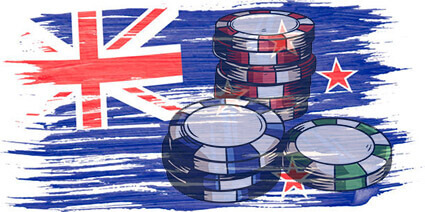Casino Player Rights
What rights does an online casino player have when playing online? Well, if this is the question on your mind, then you should know that there are several rules and regulations that ensure players' safety and satisfaction when playing online. These rules are pretty much the same regardless of your region and the regulatory authority in your jurisdiction. In this guide, we're going to cover the rights of an online casino player and the laws that govern those rights.
By Amelia Smith - Last modified 17/01/2025 - Estimated reading time: 4 minutes.
Table of contents
- » Your Rights as an Online Casino Player
- » Transparency and Fairness of Casino Games
- » Protection of Players' Information and Banking Transactions
- » Player Funds Segregation
- » Prevention and Protection against Gambling-Related Harm
- » Regulators and Their Gambling Laws
- » UKGC Player Rights
- » MGA Player Rights
- » Spelinspektionen Player Rights
Your Rights as an Online Casino Player

Gambling online in New Zealand is restricted under the Gambling Act 2003, yet players are allowed to gamble at offshore websites. These offshore platforms, while not licensed locally, often operate under reputable regulatory authorities like the UK Gambling Commission or the Malta Gaming Authority. These organizations ensure players' rights through regulations on transparency, fairness, and security.
When registering at an online casino, making deposits, and playing games, you enter into a legally binding agreement. It becomes the casino operator's duty to protect your rights under their licensing authority's regulations, such as the Consumer Rights Act of 2015 in the UK.
Below is a detailed guide to your rights as an online casino player.
Transparency and Fairness of Casino Games
Ensuring fair play is a fundamental player right. Licensed online casinos use Random Number Generators (RNGs) to maintain fairness. RNGs ensure game outcomes are randomized, preventing any undue advantage. Additionally, third-party auditors like eCOGRA, iTechLabs, and Technical Systems Testing (TST) test these systems to validate their fairness and functionality.
Online casinos displaying an auditor’s seal of approval on their homepage have passed rigorous checks, ensuring player trust and compliance with regulatory standards.
Protection of Players' Information and Banking Transactions
Your online casino’s privacy policy and terms of service should clearly outline how they secure your personal information and financial transactions. Regulatory bodies require licensed casinos to implement advanced security protocols like SSL encryption, identifiable by a padlock icon in the browser’s address bar.
Additionally, under the General Data Protection Regulation (GDPR), players can request access to or deletion of their stored data. Transparency in how casinos handle your data is a sign of credibility and compliance with industry standards.
Player Funds Segregation
Licensed casinos segregate player funds from their business accounts, ensuring financial security. Depending on the regulatory requirements, player deposits are categorized into basic, medium, or high protection levels. These tiers dictate the level of safeguarding in case of insolvency.
For high-stakes players, reviewing these terms before depositing is essential. While fund segregation offers some protection, it does not guarantee full reimbursement in the event of a casino’s financial troubles.
Prevention and Protection against Gambling-Related Harm
Responsible gambling measures are pivotal for player well-being. Tools such as deposit limits, cooling-off periods, and self-exclusion enable players to manage their gambling habits effectively. Licensed casinos also provide access to organizations that offer support for gambling addiction.
Regulators and Their Gambling Laws
Different gambling regulators offer varying rights and protections to players. Below are the main regulators and the specific rights they provide:
UKGC Player Rights
The UK Gambling Commission (UKGC) is known for its stringent standards. As a player, you are entitled to:
- Fair Gaming: All games are tested for fairness using RNGs and certified by independent auditors.
- Data Security: Strong data protection laws under the Consumer Rights Act and GDPR.
- Responsible Gambling Tools: Access to reality checks, cooling-off periods, and self-exclusion features.
- Dispute Resolution: Support from independent adjudicators in case of disputes.
MGA Player Rights
The Malta Gaming Authority (MGA) is another reputable regulator that focuses on:
- Transparent Advertising: Prevention of misleading promotional terms.
- Player Fund Security: Requirement to keep player funds separate from business accounts.
- Dispute Mediation: The MGA can intervene to resolve disputes between players and casinos.
- Responsible Gambling Measures: Tools and resources to combat problem gambling.
Spelinspektionen Player Rights
As the Swedish Gambling Authority, Spelinspektionen prioritizes:
- Responsible Gambling: All operators must be registered with Spelpaus for self-exclusion.
- High Player Protection Standards: A focus on preventing gambling addiction and providing player resources.
- Fair Play: Strict testing and auditing requirements for games.
Frequently Asked Questions
Is online gambling legal in New Zealand?
Yes, while domestic online gambling is restricted, players can legally gamble at offshore websites.
How do I know if an online casino is fair?
Look for RNG certifications and third-party auditor seals such as those from eCOGRA.
How is my personal data protected?
Licensed casinos use SSL encryption and comply with GDPR to safeguard your information.
What tools are available to manage gambling habits?
Casinos offer reality checks, deposit limits, and self-exclusion options to encourage responsible gambling.
What is fund segregation?
It’s a practice where player deposits are kept in separate accounts to ensure they’re protected from business insolvency risks.
Are my rights different at offshore casinos?
Your rights depend on the casino’s licensing authority. Reputable regulators ensure high standards of fairness and security.












